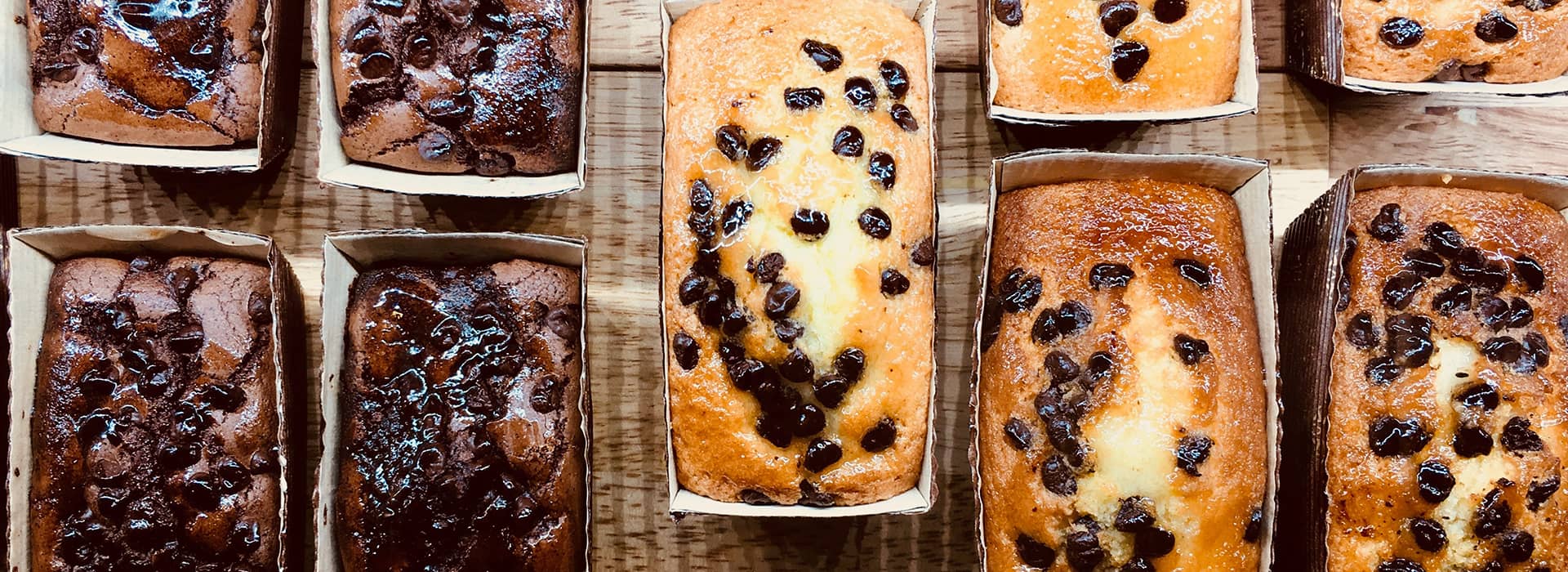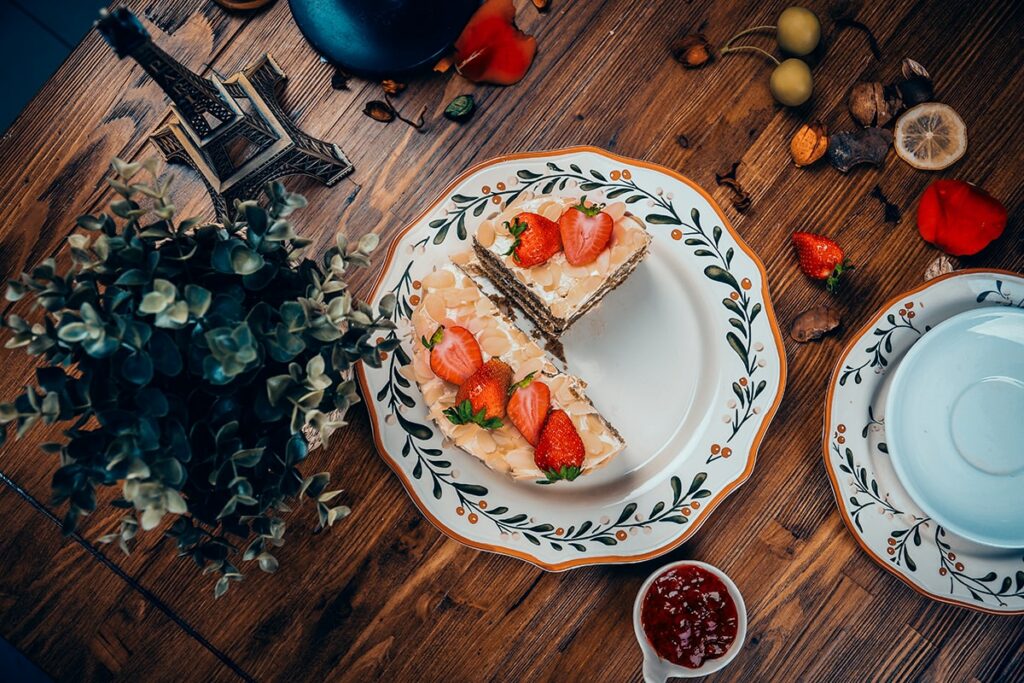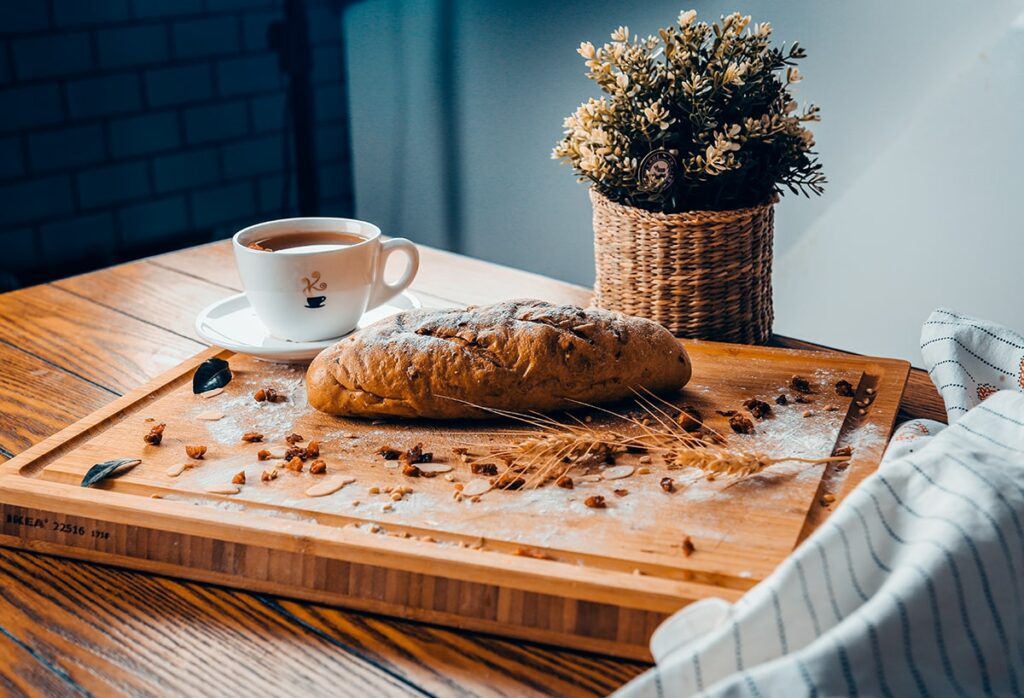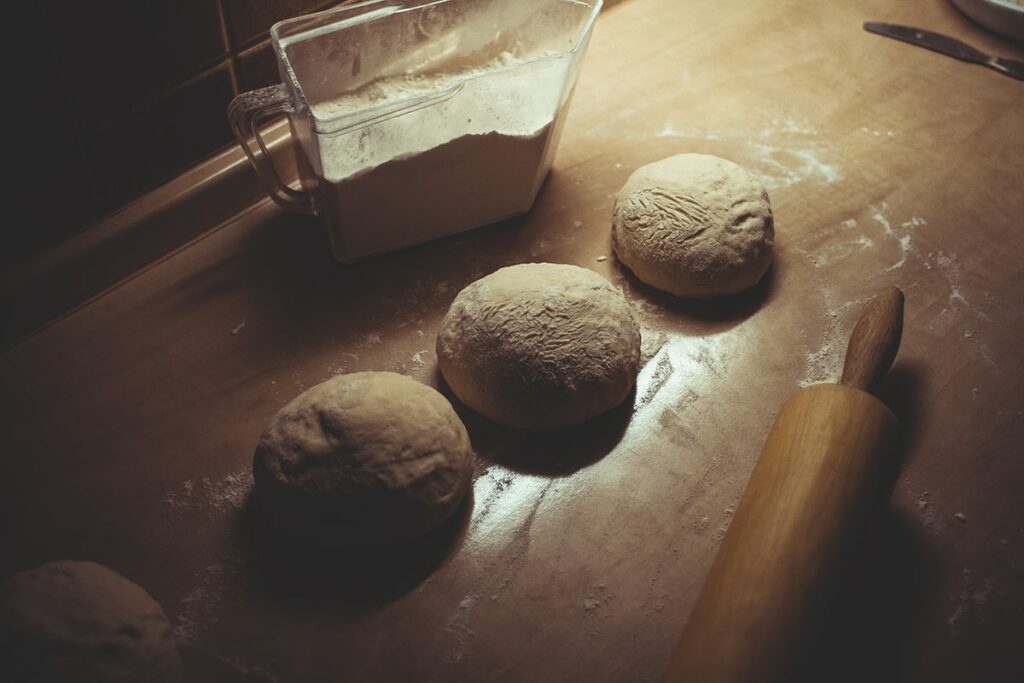BREAD
What is bread? At its simplest it is merely a paste of flour or meal and water cooked over or surrounded by heat. More complex breads are leavened in various ways and contain salt and other ingredients, particularly fat and sugar.
Bread presented by the faithful for the Eucharist but not used for that purpose was called the eulogia. The bishop blessed it and had it distributed to catechumens and to absent members of the community. By the fourth century, Christians were sending the eulogia to one another as a symbol of their union.
Modern Theology , 2019
Bread as a symbol has also had negative aspects. The good wife does not eat the “bread of idleness” (Prv. 31:27). The ungodly “eat the bread of wickedness” (Prv. 4:17). The “bread of deceit” has a sweet taste but leaves the mouth full of gravel (Prv. 20:17).
The History of Bread
It is widely believed that the domestication and cultivation of wheat and other grains directly influenced human transition from nomadic people to domesticated, stationary people. In most parts of the world this transition was completed as wheat and subsequently bread became significant dietary staples. However, people continued nomadic ways where cultivation of grains was either not feasible or not desirable.
Methods of Preparation
While the twelve steps of baking are virtually constant for almost any bread form, three predominant production variations exist. Each is a means of manipulating the key ingredients to produce a predictable loaf of bread.
- Straight dough method
- Sponge method
- Typical pre-ferment types
In Rabbinic Literature
The rabbis regarded bread as the staple of any diet and no meal was considered complete without it. They instituted a special benediction to be recited before eating bread made from one of cereals grown in Ereẓ Israel.
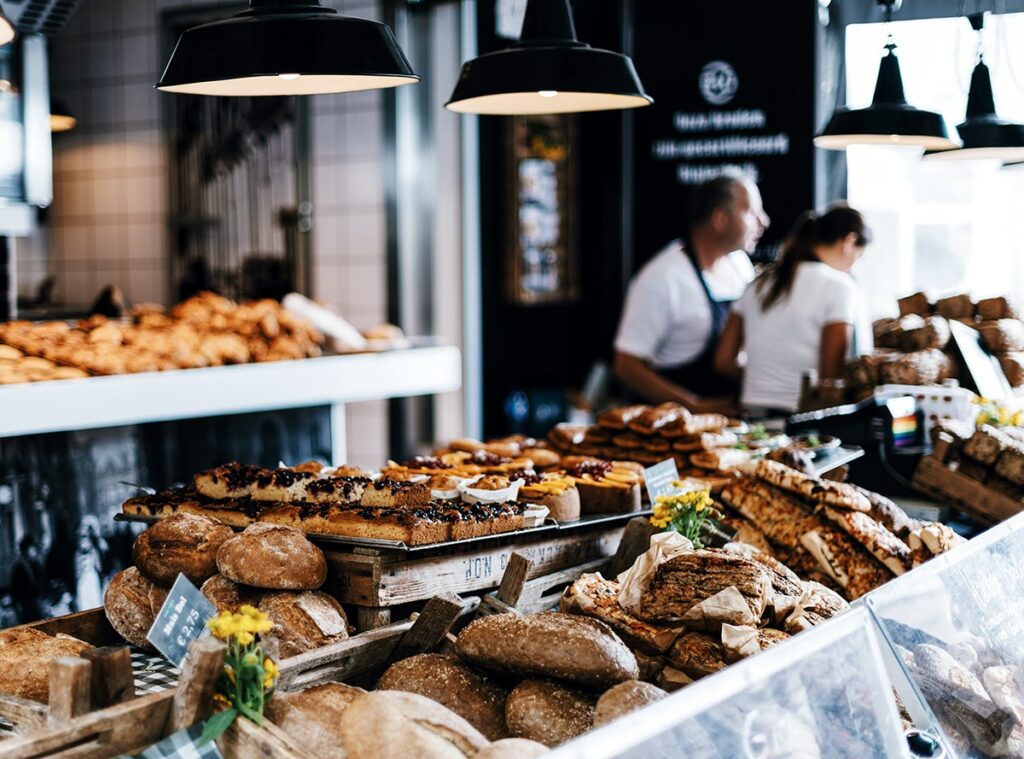
A religious duty of Jewish women baking bread is to separate a small portion of the dough, about the size of an olive, as ḥallah (Shab. 2:6) and to burn it (o Ḥ 457). From talmudic times, it was the special duty of the housewife to bake the bread for the Sabbath (Ta’an. 24b–25a).
Bread with salt was regarded in midrashic literature as the poor man’s food (Ber. 2b) but sufficient for the humble student of the Torah (Avot 6:4), and it has remained a custom to sprinkle a little salt on bread to be eaten at the beginning of meals
The ritual use of bread may have originated as an offering of nourishment to the deity. But since the God of the Israelites refused all nourishment (Jgs. 13:16), the loaves became a symbol of communion between Yahveh and his people…..

